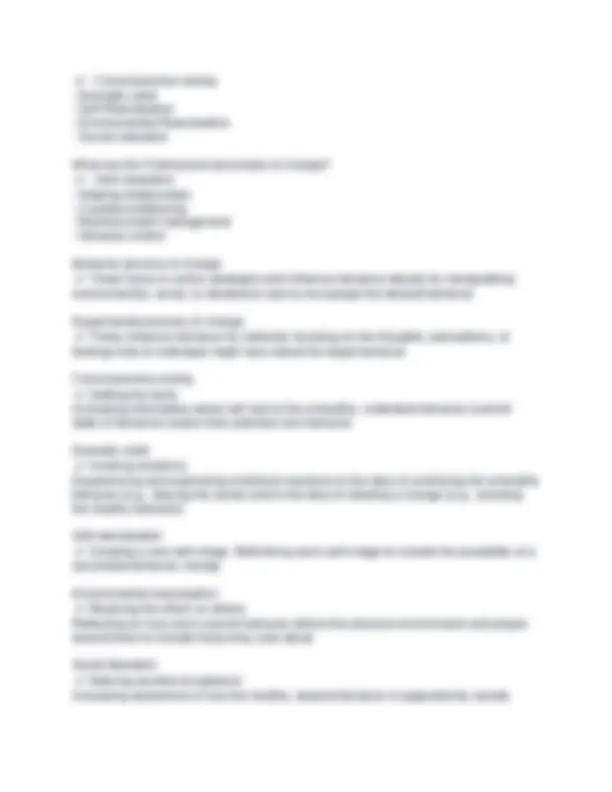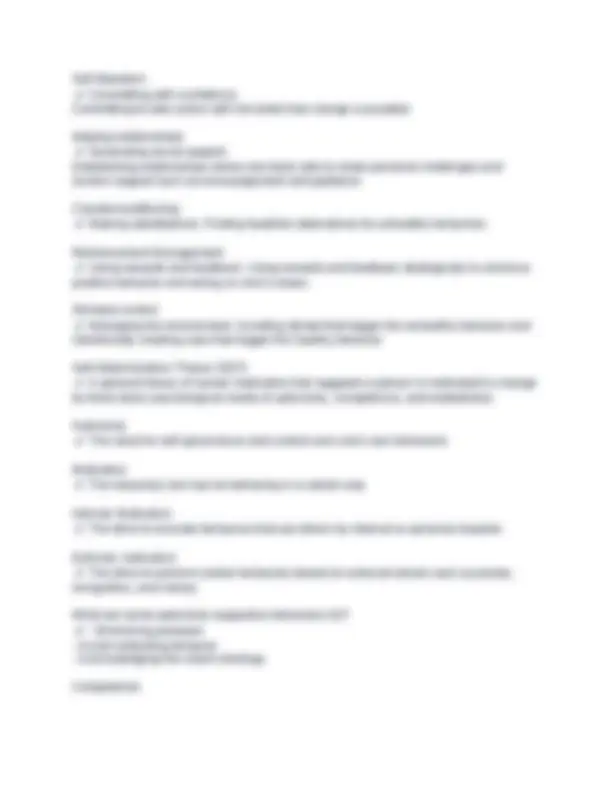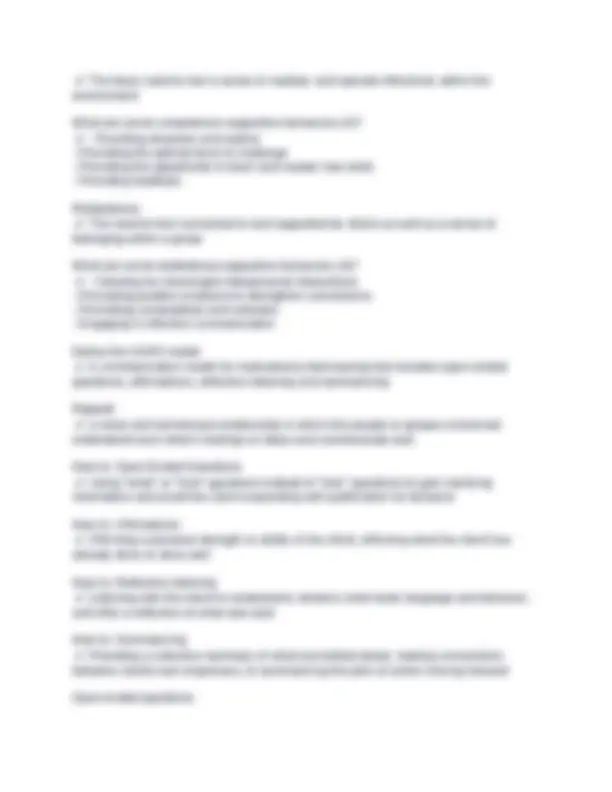





Study with the several resources on Docsity

Earn points by helping other students or get them with a premium plan


Prepare for your exams
Study with the several resources on Docsity

Earn points to download
Earn points by helping other students or get them with a premium plan
Community
Ask the community for help and clear up your study doubts
Discover the best universities in your country according to Docsity users
Free resources
Download our free guides on studying techniques, anxiety management strategies, and thesis advice from Docsity tutors
ISSA CPT - Chapter 2 Psychology and Behavior Change Questions with Answers latest 2025
Typology: Exams
1 / 6

This page cannot be seen from the preview
Don't miss anything!




Behavior ✔ an action that can be observed, measured, and modified Type 2 Diabetes ✔ A long-term metabolic disorder that is characterized by high blood sugar, insulin resistance, and relative lack of insulin Transtheoretical Model (TTM) ✔ a behavior change model focused on the stages of change, the process of changing behavior, self-efficacy, and the decision balance The TTM is a multifaceted framework that encompasses four key distinct but interrelated constructs: ✔ - Stages of Change
✔ In denial, or ignorant, that a change is necessary, possible, or worth the effort within the next six months Describe the Contemplation Stage of Change ✔ Contemplate making a change in the next six months but reluctant to commit Describe the Preparation Stage of Change ✔ Committed to make a change in the target behavior within 30 days; engages in preparation activities Describe the Action Stage of Change ✔ Engaged in change behavior for less than six months; new behavior is not fully stabilized Describe the Maintenance Stage of Change ✔ Sustaining their new, healthy behavior for more than six months What are the Key Indicators of the Pre-Contemplation Stage of Change? ✔ - Lacks the belief they could change, even if they wanted to
Self-liberation ✔ Committing with confidence. Committing to take action with the belief that change is possible Helping relationships ✔ Generating social support. Establishing relationships where one feels safe to share personal challenges and receive support such as encouragement and guidance Counterconditioning ✔ Making substitutions. Finding healthier alternatives for unhealthy behaviors Reinforcement Management ✔ Using rewards and feedback. Using rewards and feedback strategically to reinforce positive behavior and acting on one's values Stimulus control ✔ Managing the environment. Avoiding stimuli that trigger the unhealthy behavior and intentionally creating cues that trigger the healthy behavior Self-Determination Theory (SDT) ✔ A general theory of human motivation that suggests a person is motivated to change by three basic psychological needs of autonomy, competence, and relatedness. Autonomy ✔ The need for self-governance and control over one's own behaviors Motivation ✔ The reason(s) one has for behaving in a certain way Intrinsic Motivation ✔ The drive to execute behaviors that are driven by internal or personal rewards Extrinsic motivation ✔ The drive to perform certain behaviors based on external factors such as praise, recognition, and money What are some autonomy-supportive behaviors (3)? ✔ - Minimizing pressure
✔ The basic need to feel a sense of mastery and operate effectively within the environment What are some competence-supportive behaviors (4)? ✔ - Providing structure and routine